I shouldn't worry too much about the 'bush' mentioned in the manual, Ryan. It's a Ducati manual don't forget and we know that they're not always accurate!
I have a copy of the Marzocchi service guide for these forks and this type of fork comes in Ø43mm and Ø50mm versions. (The Evo runs the Ø43mm ones.) Only the Ø50mm ones appear to have the bush.
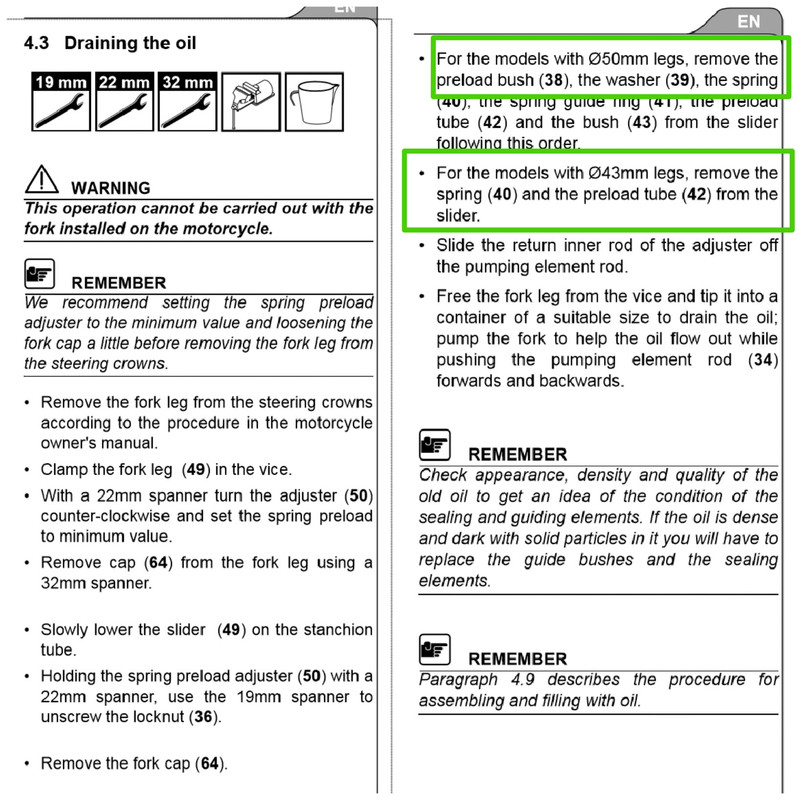 Disassembly instructions (note that the bush is only mentioned for the 50mm forks
Disassembly instructions (note that the bush is only mentioned for the 50mm forks
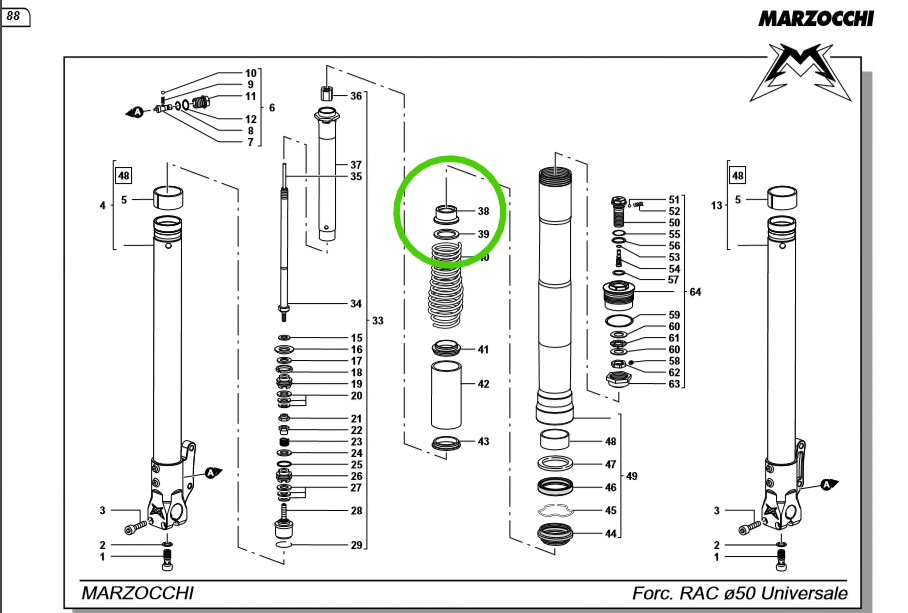 Exploded view of Ø50mm forks (with bush)
Exploded view of Ø50mm forks (with bush)
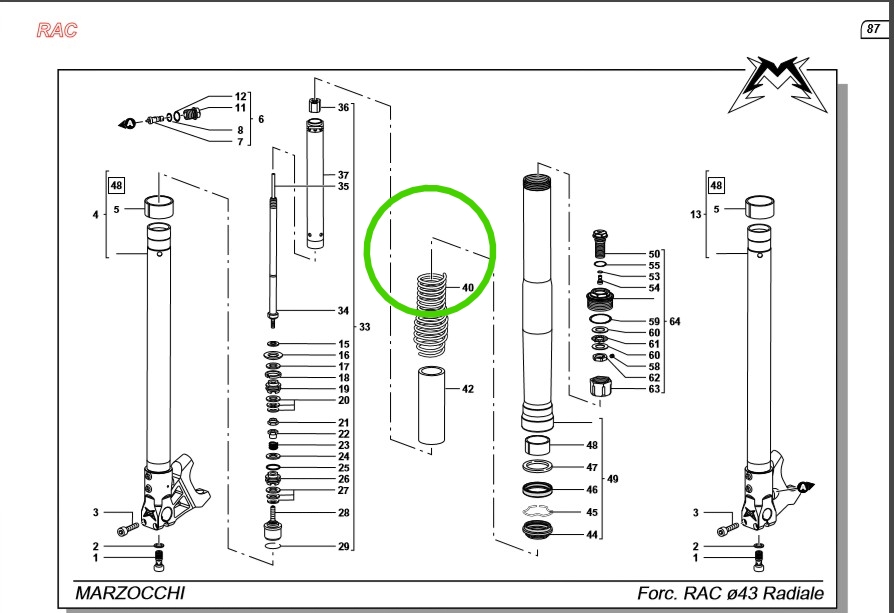 Exploded view of Ø43mm forks (no bush)
Exploded view of Ø43mm forks (no bush)
So I think the guidance in the Ducati manual is probably just one of those idiosyncrasies we've come to know and love about Ducati!
I'd forgotten I had the Marzocchi service guide (sorry!) until I read your post, otherwise I'd have let you see it before you started work. If you'd still like it for future reference, PM me your email address and I'll send you a copy.






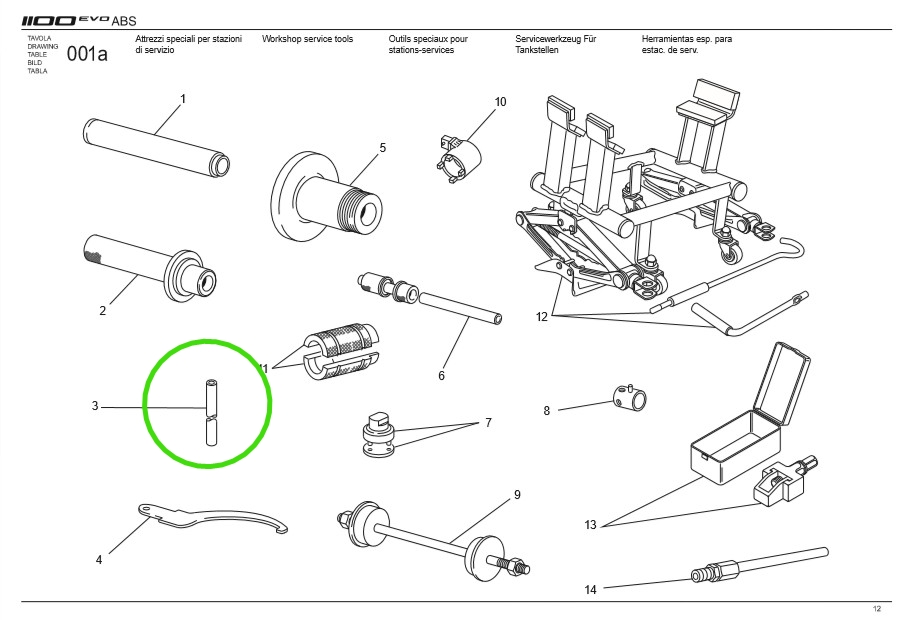



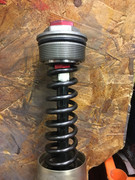

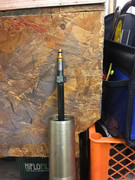
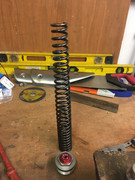
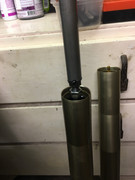




 Linear Mode
Linear Mode

